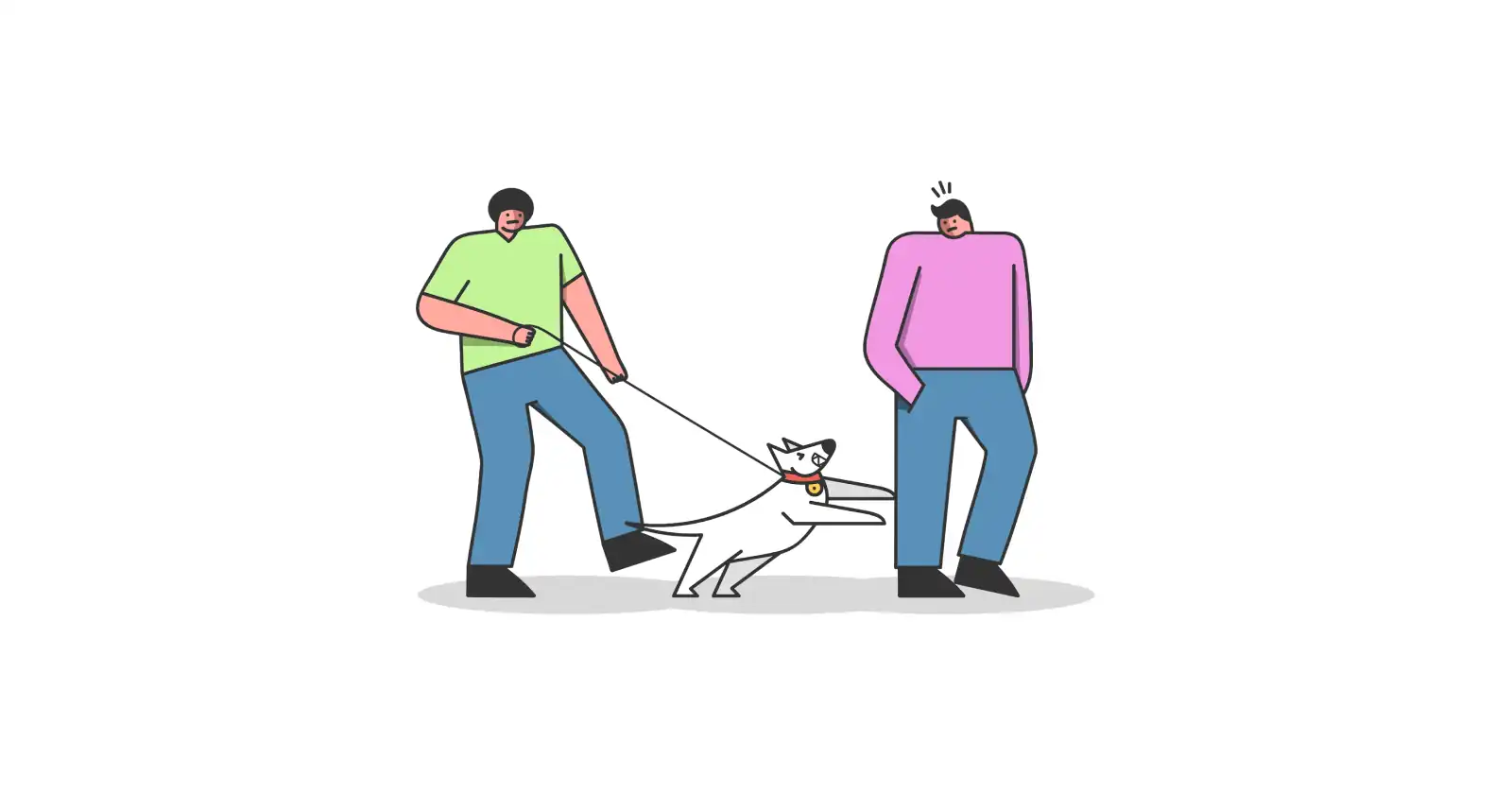Common Behavioral Problems in Dogs and their Solutions

It's an amazing feeling to be a dog parent. A wagging tail moving always around sets the mood right.
Having a dog or any pet for that matter comes with a lot of responsibilities. It's no less than growing a baby. While growing up, dogs undergo many behavioral changes which tell several things about their mood, mental state, and physical health. Let's talk about some common behavioral changes which you should be taking care of and the solutions for a happy-wagging tail.
1. Aggression:
It is a very common behavior in dogs. They can be aggressive while protecting something, defending themselves or their offspring, and in many more such situations. But this becomes a concern when the aggression becomes excessive and shown towards the wrong people or things at the wrong time.
To solve aggression issues in dogs, it is always better to observe and find out what triggers them, what calms them down, how it behaves when aggressive, Is their aggression increasing with time? Observing and asking these questions will help you make the right decision for your pet and train them to be calm in such situations. And not to mention, it's always better to ask for the professional help from Dog Behaviorists and get your dog trained.
2. Barking:
Most dogs vocalize in some or the other way. They might howl, whine or bark. But, if your dog is barking a lot or for extended periods, it might get irritating for you and the people around you. It might be an indication of your dog facing some serious behavioral issues. So, before you start scolding your dog for barking too much, you must first figure out why they are vocalizing in the first place.
Excessive barking might be coming from their fears or anxiety, or they might be barking because they need something or wish to draw your attention. The root causes of barking should be addressed. Never yell at your dog, no matter how annoying the barking gets because yelling can worsen the situation by causing them to bark more in alarm. They might even think of you yelling at them as joining them in making noise.
If they are afraid of anything or feel uncomfortable in certain situations, make every effort to keep them away from it until they are gradually trained to stay calm in such situations. Teach them peaceful ways to communicate. Consider giving them commands to bark or be quiet. To stop a dog from barking, dedication and careful attention to detail can be quite helpful. This problem can also be addressed by professional training.
3. Separation Anxiety:
Is your dog naughty, messy, and just chews away everything it finds when left alone? Are you having a considerable time saving your sofa and couch? Don't worry, it's a very common behavior of dogs. These can be signs of sadness when you leave them alone. Most of the time the solution is just to train your dog, and teach them how to behave inside the house and stay calm even if you are not with them.
A lot of times pets get anxious when the parents leave the house or they get the feeling of being separated. It is termed separation anxiety. To help your dog with separation anxiety, try leaving them for smaller periods first and then increasing the time gradually. Try making their day more predictable so they can understand when they can expect attention and when they should relax by napping or playing. When leaving them alone, ensure they have access to their favorite toys and everything they might need in your absence.
This problem can also be solved by providing lots of physical and mental stimulation before leaving them alone. Play with them and exercise with them before leaving, exercising your dog's mind and body will help them find their inner chill and release stress. You can also seek professional guidance, reward-based training helps your dog understand you better and solve many such behavioral problems.
4. Food Guarding:
All animals have some levels of guarding behavior in them. For most dogs, it's very common to guard their food and resources. Your pet might see you as a threat and try to guard their food or any resource they find valuable. When guarding, they might get overprotective and even attack you.
The solution relies on you conditioning them from the day you bring them home. Make them feel comfortable eating in your presence and hand-feed the kibbles and stroke them gently while talking to them. Slowly go from hand-feeding to keeping their bowl in your lap and then serving them keeping their bowl on the floor. Make sure you stroke them gently and talk to them in their puppy's initial days at your home to make them feel safe waiting in your presence. Also, teach them the proper way of guarding their resources. Some simple eating exercises are enough to teach your lovely pet the right way of doing things.
In this blog, we have covered the major behavioral problems in dogs. If your dog is facing any such behavioral problems, patience and understanding are all you need. In certain cases, you might need some expert guidance to curb wrong behaviors and understand your dog better. You can get in touch with Kuddle and schedule Doorstep Dog Training sessions with experienced and certified Dog Trainers all across Bangalore.